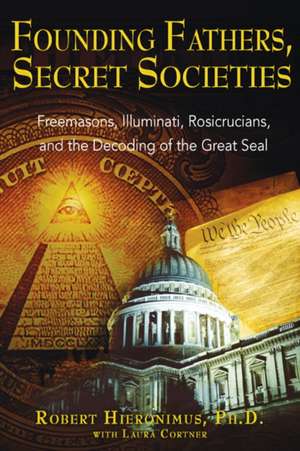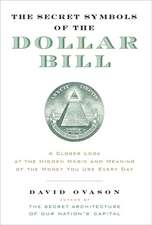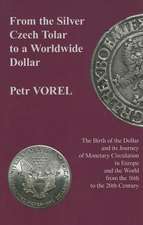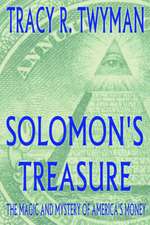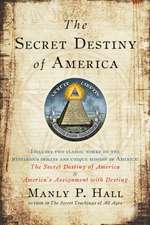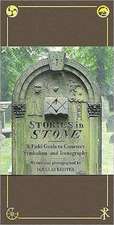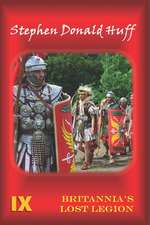Founding Fathers, Secret Societies: Freemasons, Illuminati, Rosicrucians, and the Decoding of the Great Seal
Autor Robert Hieronimus Laura Cortneren Limba Engleză Paperback – 31 dec 2005
Reveals the Founding Fathers spiritual vision for America as encoded in the Great Seal
Traces the influence of the Iroquois League of Nations upon the Constitution
Exposes the deep connections the Founding Fathers had with the Freemasons and other secret societies
All children growing up in America learn who the Founding Fathers were. Most, however, never learn of the founders connections to the Freemasons, the Rosicrucians, and other esoteric orders. In" Founding Fathers, Secret Societies" Robert Hieronimus investigates these important connections and how their influence can be traced throughout our most significant national documents and symbols, especially the Great Seal. He reveals in detail how the reverse of the Great Seal--which appears on the back of the one-dollar bill--is a blueprint that conveys the secret destiny of America. By understanding the kabbalistic meaning of the Great Seal s reverse, he shows how our current era presents unique opportunities for the fulfillment of our Founding Fathers spiritual vision."
Preț: 108.44 lei
Nou
Puncte Express: 163
Preț estimativ în valută:
20.75€ • 22.53$ • 17.43£
20.75€ • 22.53$ • 17.43£
Carte disponibilă
Livrare economică 01-15 aprilie
Preluare comenzi: 021 569.72.76
Specificații
ISBN-13: 9781594770876
ISBN-10: 1594770875
Pagini: 246
Dimensiuni: 177 x 230 x 19 mm
Greutate: 0.4 kg
Ediția:Revised
Editura: Destiny Books
Locul publicării:United States
ISBN-10: 1594770875
Pagini: 246
Dimensiuni: 177 x 230 x 19 mm
Greutate: 0.4 kg
Ediția:Revised
Editura: Destiny Books
Locul publicării:United States
Notă biografică
<p /><p><strong><br />from Chapter 2<br /><br /></strong><strong>Secret Societies and the Founding of a Nation<br /><br /></strong>Historians have offered many reasons for the fact that a rag-tag American army, led by a general who had to go to the library to brush up on battle tactics, could defeat the strongest military power in the world. Many valid factors have been cited--the barrier of the Atlantic Ocean, the weakness of King George and his problems at home, the guerrilla tactics of the American army, etc.--but what has been overlooked is the influence of secret societies, especially Freemasonry, on America's leaders. Some esoteric historians (Hall, 1951; Case, 1935) cite that of the 56 signers of the Declaration of Independence, at least 50 were Freemasons. Whether this is a fact or not cannot be presently corroborated, but substantial information supports that many of the officers and enlisted men in the American military were Freemasons and many practiced the craft in the military lodges. According to General Lafayette (a Freemason himself), Washington "never willingly gave independent command to officers who were not Freemasons. Nearly all the members of his official family, as well as most other officers who shared his inmost confidence, were his brethren of the mystic tie" (Morse, 1924, ix).<br /><br />Freemasonry allowed Washington greater control of and influence on his army. Those who breached military and Masonic secrets faced the penalty of death. Manly Hall (1951) and Paul F. Case (1935) report that 12 of Washington's generals were Freemasons, and that this, in part, accounted for their strong allegiance during America's darkest hours.<br /><br />The underlying philosophy of Freemasonry ("The brotherhood of man and the Fatherhood of God") was the foundation of political, religious, social, and educational reform, which was opposed by the monarchies of Europe and ecclesiastical authorities as well. Washington's leadership and involvement with the craft gave him the confidence that America's military secrets were safe. His involvement in Freemasonry, as Master of the Lodge, provided him with more than confidence, because the lodge ritual's function was to elevate the participant's consciousness.<br /><br />A group of Freemasons experiencing the rituals and initiations in an altered state of awareness provided the internal strength and fortitude for them to grasp the importance of the American revolutionary experience, and its meaning for humanity as a whole.<br /><br />Thus the Atlantic Ocean, guerrilla tactics, and King George's conflicts contributed to the defeat of the English army, but so did the Freemasonic experience. It provided Washington the will and capacity to defeat King George when the world expected America's defeat.<br /><br /><strong>Thomas Jefferson<br /></strong>Was Thomas Jefferson a member of any secret societies? Masonic sources say he was, but no one has turned up documentary evidence of his initiation. The Masonic <em>Bible</em> (1960), however, has "unmistakable evidence that he was an active mason." These include records of his name as a visitor in a cornerstone-laying ceremony and references in twenty-nine issues of Masonic journals to his status as a Mason. Jefferson's humanitarian beliefs were harmonious with eighteenth-century Masonry. It has been suggested that Jefferson may have been initiated in France; if so, an American initiation record would not exist.<br /><br />The Rosicrucians claim Washington and Franklin as members, but do not provide irrefutable evidence. In Jefferson's case, however, Dr. H. Spencer Lewis, former Imperator of the Rosicrucian order, introduces a piece of substantial evidence. Lewis found among Jefferson's papers some "strange-looking characters" that previous researchers had assumed were a code Jefferson had invented. "I recognized it as one of the old Rosicrucian codes used for many years before Thomas Jefferson became a Rosicrucian, and still to be found in many of the ancient Rosicrucian secret manuscripts" (Heindon, 1961, 126). I have submitted this code to several cryptographers and none have yet been successful in identifying it. Mr. Rex Daniels of Concord, Massachusetts, commented (March 14, 1974), "I have taken several tries at the code with no success for the standard ones . . . you have hit upon something nobody else seems to know about."<br /><br />Jefferson's visions of America can be translated as expansionist. His Louisiana Purchase was not only a landmark in the development of the American nation but an expression of an "Empire for Liberty" that would manifest in the annexing of Canada and Cuba. From this vantage the Monroe Doctrine, which Jefferson strongly urged upon President James Monroe, was not as much a separation of America from Europe as a natural expansion of America's destiny to include the South American continent. In Jefferson's words:<br /><br /><em>America, North and South, has a set of interests distinct from those of Europe . . . while the last is laboring to become the domicile of despotism, our endeavor should surely be, to make our hemisphere that of freedom. What a colossus shall we be when the southern continent comes up to our mark! What a stand will it secure as a ralliance for the reason and freedom of the globe!</em> (Boorstin, 1963, 232)<br /><br />Jefferson's most prized accomplishment, founding the University of Virginia, was based on the traditions of the schools of Athens and Florence and the Alexandrian Library: he wanted to ensure freedom from all theological restraint. Jennings C. Wise theorized that within Jefferson's architectural design of the university are hidden the teachings of the mystery schools and secret societies. Realizing that curricula could be altered, Wise suggests, Jefferson embedded the philosophy of the mystical tradition in the bricks and mortar of the university, so that its design would convey a philosophy free from dogma and superstition. Jefferson unites the ancient architectural elements of the rotunda and the rectangular academic hall, which symbolize heaven (the rotunda as used in the Chaldean Planet Tower called the House of the Seven Spheres) and earth (the four-cornered rectangle). Their use together in one structure symbolizes the union of heaven and earth. </p>
Recenzii
"There are images and ideas contained in this book which may well challenge your "knowledge" of American history, the evolution of society, and the place of America in the world-at-large. Read it with an open mind and you may be surprised at what you find."--Mike Gleason, Witchgrove, March 2007
"This is one you'll have to read and evaluate if you're into intricacies of theory and mind-bending history."--Marilus Hornidge, Book Bag, June 1, 2006
"This is one you'll have to read and evaluate if you're into intricacies of theory and mind-bending history."--Marilus Hornidge, Book Bag, June 1, 2006
Textul de pe ultima copertă
SECRET SOCIETIES / HISTORY "The ultimate book about the secrets of our Founding Fathers. It is, very simply, the best thing of its kind that has ever been written. Careful research and years of effort show in this beautiful work--as exciting and informative as it is important." -Whitley Strieber, host of Dreamland with Whitley Strieber "Founding Fathers, Secret Societies is that rare thing--a really excellent, thoroughly researched, and beautifully written book. I learned something new on every page." --Graham Hancock, author of Fingerprints of the Gods "I can think of no living man who has done as much as Dr. Hieronimus to investigate the mysteries surrounding the founding of the United States of America. Providing more than a revelation of the spiritual vision behind the founding of a new nation, Hieronimus sets a standard which contributes to the perpetual re-making of that ashlar cornerstone upon which the American experiment has been, is being, and will be built as the Novus Ordo Seclorum unfolds." -David Ovason, author of The Secret Architecture of Our Nation's Capital and The Secret Symbolism of the Dollar Bill All children growing up in America learn who the Founding Fathers were. Most, however, never learn of the founders' connections to the Freemasons, the Rosicrucians, and other esoteric orders. In Founding Fathers, Secret Societies Robert Hieronimus investigates these important connections--as well as the founders' connections to the League of the Iroquois--and how the influence of these groups can be traced throughout our most significant national documents and symbols, especially the Great Seal. He reveals in detail how the reverse of the Great Seal, which appears on the back of the one-dollar bill, is a blueprint that conveys the secret destiny of America. By understanding the kabbalistic meaning of the Great Seal's reverse, we discover the unique opportunities the current era presents for achieving the Founding Fathers' spiritual vision. ROBERT HIERONIMUS, Ph.D., is a historian, visual artist, and radio host. His weekly program, 21st Century Radio with Dr. Bob Hieronimus, broadcasts New Paradigm topics across the United States. He lives in Maryland.
Cuprins
Acknowledgments
Introduction
1 The League of the Iroquois and the Great Law of Peace
2 Secret Societies and the Founding of a Nation
3 The History of America's Great Seal
4 The Return of the Reverse of the Great Seal and the Design of the Dollar Bill
5 A Symbolic and Mythological Analysis of the Reverse of the Great Seal
6 The Great Seal and the Paradigm Shift
7 The Blueprint for America's Vision and Fulfillment
Afterword
Appendix 1: The Great Pyramid, Symbol of Mystery
Appendix 2: The Nature of Talismans
Notes
Bibliography
Index
Introduction
1 The League of the Iroquois and the Great Law of Peace
2 Secret Societies and the Founding of a Nation
3 The History of America's Great Seal
4 The Return of the Reverse of the Great Seal and the Design of the Dollar Bill
5 A Symbolic and Mythological Analysis of the Reverse of the Great Seal
6 The Great Seal and the Paradigm Shift
7 The Blueprint for America's Vision and Fulfillment
Afterword
Appendix 1: The Great Pyramid, Symbol of Mystery
Appendix 2: The Nature of Talismans
Notes
Bibliography
Index
